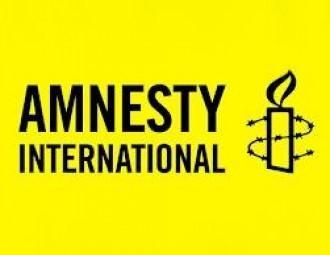Belarus: New report reveals widespread suppression of dissent

Civil society is being suppressed in Belarus by a repressive government that will not tolerate any form of criticism, Amnesty International said in a report released on April18.
The report “What is not permitted is prohibited: Silencing civil society in Belarus” shows how the authorities in Belarus regularly deny the rights to freedom of peaceful assembly, association and expression. This prevents people from speaking out in public, holding demonstrations or setting up civil organisations. Peaceful demonstrators frequently face fines or even prison sentences.
Heather McGill, Amnesty International’s researcher on Belarus, said:
“Over the past 20 years, the government of Belarus has increasingly suffocated all aspects of civil society, depriving its people of the opportunity to express their opinions, to contribute to public debate and ultimately to act as a check on the authorities.”
Amnesty’s report analyses the legislation governing freedom of peaceful assembly and association and documents violations of these rights faced by human rights defenders, trade unions, environmental campaigners and lesbian, gay, bisexual and transgender individuals.
People trying to register independent organisations of any kind have to grapple with restrictive legislation which civil servants apply in ways that further restrict freedom of association. Activists who function without registration face the threat of prosecution for acting in the name of an unregistered organisation.
No new political parties have been registered in Belarus since 2000 because of stringent registration requirements, and members of independent trade unions face discrimination in the workplace.
Ales Bialiatski, a prisoner of conscience and Chair of the Human Rights Centre Viasna, an organisation which lost its registration in 2003, was sentenced to four and a half years’ imprisonment in 2011 for money that was paid into his personal bank accounts in Poland and Lithuania to fund the work of the human rights centre as it had been prevented from opening a bank account in Belarus.
Aleh Stahevich, a driver for the Granit gravel quarry in south western Belarus, was elected president of an independent trade union founded in December 2011. In accordance with legislation, the workers informed the employer about the establishment of the union and asked for a legal address. The company refused and harassed those trying to join it. Aleh Stahevich was prosecuted for careless driving in what he believes was a fabricated case, and dismissed. To date four members of the independent union have been dismissed while others have been intimidated and left the union for fear of losing their jobs.
When local Amnesty International members attempted to register as an international organisation in 2003 they were told there were problems with the use of the organisation’s symbol. When they tried to register as a local foundation in 2005 they were told that they could register if they agreed all activities with state bodies in advance. As this threatened their ability to function independently, they decided not to register.
Over the years Amnesty International has documented many incidents where participants in unsanctioned demonstrations have been arrested and detained and sometimes beaten by the police.
In 2011 weekly “silent protests”, where groups of people throughout the country would stroll wordlessly, applaud or use their mobile phone alarms simultaneously, saw participants beaten, sentenced to administrative detention or fined.
The largest demonstration in the country’s recent history, following the presidential elections in December 2010, was suppressed with unprecedented violence. When police moved in to disperse it in the centre of the capital Minsk over 700 people were detained and many, including bystanders, were beaten and wounded. Four prisoners of conscience Mikalai Statkevich, Pavel Sieviaryniets, Eduard Lobau and Zmicier Dashkevich remain in prison in connection to the demonstration to this day.
The Law on Mass Actions violates the fundamental right of people in Belarus to demonstrate.
Peaceful protesters are frequently sentenced to fines or short periods of detention for violating the Law on Mass Actions or for minor offences such as swearing in public. Pavel Vinagradau, a member of the youth political movement Zmena (Change), spent a total of 66 days in detention between 30 December 2011 and 12 December 2012 on eight separate administrative convictions, all for minor offences such as swearing or violations of the regulations for public meetings and pickets.
“Belarus must allow its people to express themselves freely without repression. The Belarusian authorities must review all presidential decrees and laws relating to the registration and activities of NGOs and ensure that officials respect the right to freedom of association and assembly.”
-
03.01
-
07.10
-
22.09
-
17.08
-
12.08
-
30.09








































